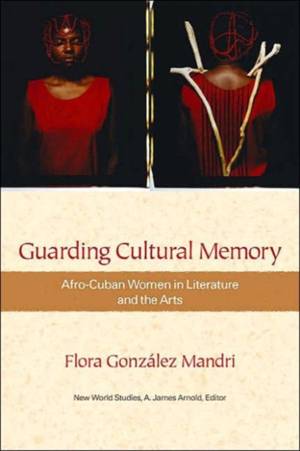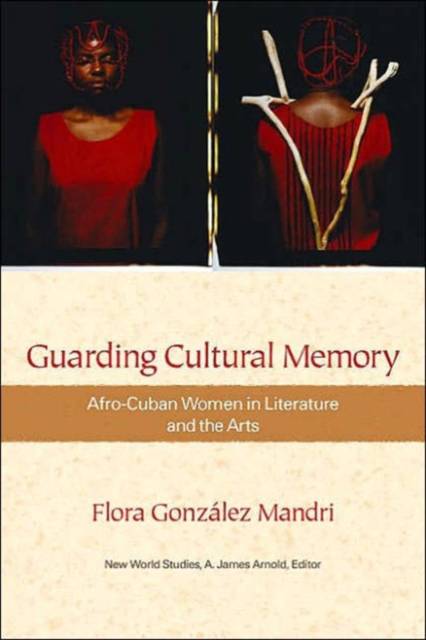
- Afhalen na 1 uur in een winkel met voorraad
- Gratis thuislevering in België
- Ruim aanbod met 7 miljoen producten
- Afhalen na 1 uur in een winkel met voorraad
- Gratis thuislevering in België
- Ruim aanbod met 7 miljoen producten
Omschrijving
In Guarding Cultural Memory, Flora González Mandri examines the vibrant and uniquely illuminating post-Revolutionary creative endeavors of Afro-Cuban women. Taking on the question of how African diaspora cultures practice remembrance, she reveals the ways in which these artists restage the confrontations between modernity and tradition.
González Mandri considers the work of the poet and cultural critic Nancy Morejón, the poet Excilia Saldaña, the filmmaker Gloria Rolando, and the artists María Magdalena Campos-Pons and Belkis Ayón. In their cultural representations these women conflate the artistic, the historical, and the personal to produce a transformative image of the black woman as a forger of Cuban culture. They achieve this in several ways: by redefining autobiography as a creative expression for the convergence of the domestic and the national; by countering the eroticized image of the mulatta in favor of a mythical conception of the female body as a site for the engraving of cultural and national conflicts and resolutions; and by valorizing certain aesthetic and religious traditions in relation to a postmodern artistic sensibility
Placing these artists in their historical context, González Mandri shows how their accomplishments were consistently silenced in official Cuban history and culture and explores the strategies through which culturally censored memories survived--and continue to survive--in a Caribbean country purported to have integrated its Hispanic and African peoples and heritages into a Cuban identity. The picture that finally emerges is one not only of exceptional artistic achievement but also of successful redefinitions of concepts of race, gender, and nation in the face of almost insurmountable cultural odds.
Specificaties
Betrokkenen
- Auteur(s):
- Uitgeverij:
Inhoud
- Aantal bladzijden:
- 256
- Taal:
- Engels
- Reeks:
Eigenschappen
- Productcode (EAN):
- 9780813925264
- Verschijningsdatum:
- 2/05/2006
- Uitvoering:
- Paperback
- Formaat:
- Trade paperback (VS)
- Afmetingen:
- 154 mm x 229 mm
- Gewicht:
- 376 g

Alleen bij Standaard Boekhandel
Beoordelingen
We publiceren alleen reviews die voldoen aan de voorwaarden voor reviews. Bekijk onze voorwaarden voor reviews.












